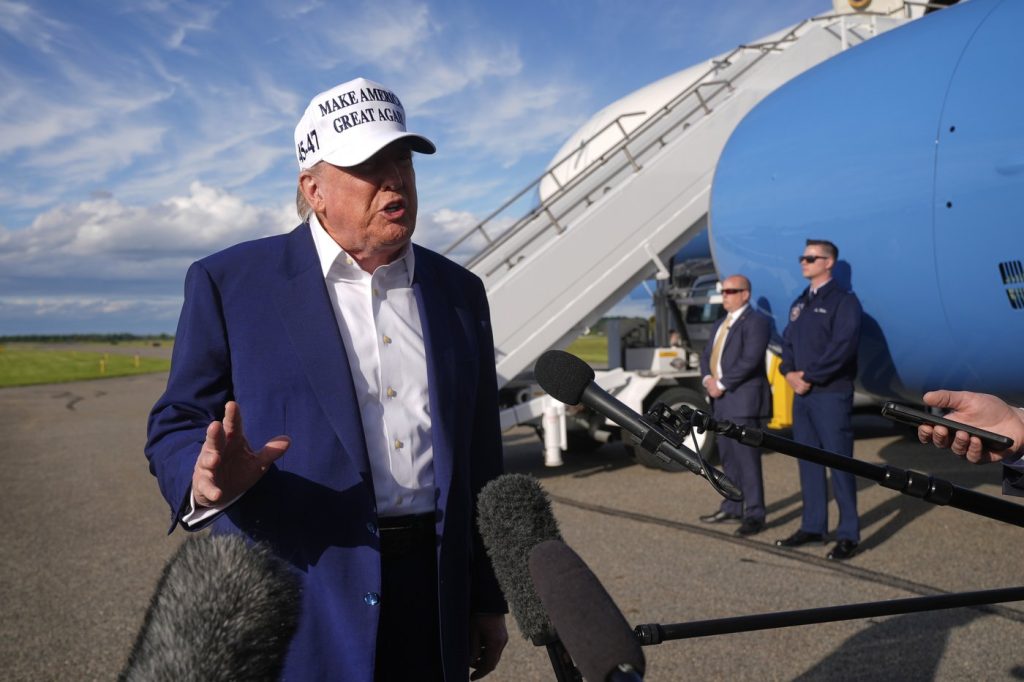On a recent Sunday, President Donald Trump announced that the United States will postpone the implementation of a proposed 50% tariff on goods imported from the European Union (EU). Originally set to take effect on June 1, the new deadline for these tariffs has been pushed to July 9, 2025. This delay is intended to allow for further negotiations between the U.S. and the EU, aimed at addressing ongoing trade disputes.
The decision came after a phone call between Trump and Ursula von der Leyen, the president of the European Commission. Trump reported that von der Leyen expressed her desire to engage in serious negotiations, which the U.S. president welcomed. “I told anybody that would listen, they have to do that,” Trump stated to reporters while in Morristown, New Jersey, before returning to Washington. He later conveyed that von der Leyen had committed to quickly convening talks in hopes of finding a resolution.
Prior to this agreement, Trump had signaled his frustrations through a social media post where he threatened to implement the 50% tariffs, citing the EU's difficult stance on trade negotiations and declaring that discussions were at a standstill. He remarked that the tariffs were initially slated to begin on June 1, thereby intensifying tensions between the U.S. and the EU.
However, the constructive dialogue from the call with von der Leyen seemed to alleviate some of the tensions that had been escalating. Trump later shared on his social media platform, Truth Social, that he was pleased to extend the deadline to July 9 and felt it was a privilege to do so.
Von der Leyen responded positively, stating that both the EU and the U.S. hold the “world’s most consequential and close trade relationship.” She emphasized the EU's readiness to advance discussions in a swift and decisive manner, acknowledging that sufficient time until July 9 would be necessary to forge a beneficial agreement.
This development marks a critical juncture in U.S.-EU trade relations as both sides seek to negotiate terms that could harmonize trade practices and mitigate potential economic friction. The delay in the tariff implementation symbolizes a temporary reprieve from a trade escalation that could have significant implications for both economies.












